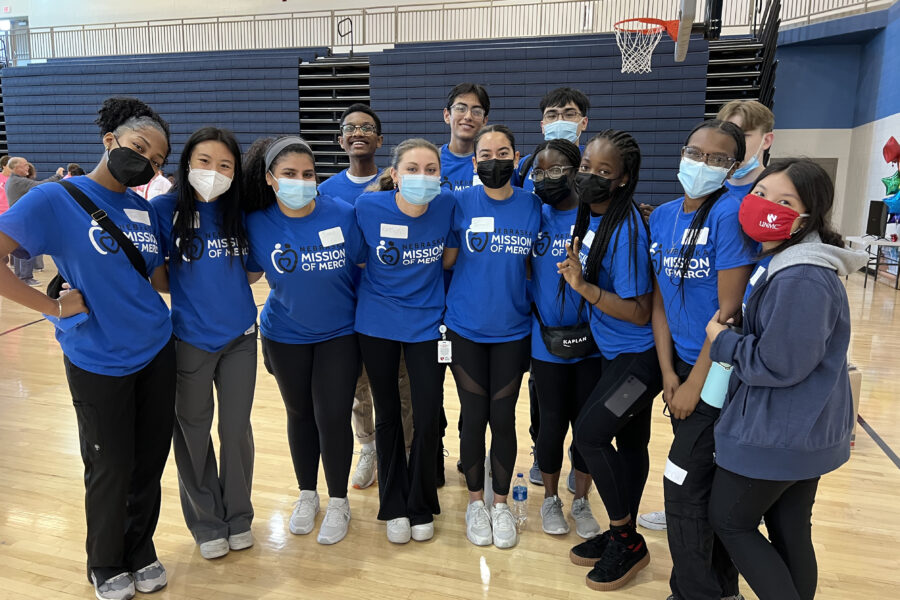UNMC’s longstanding commitment to grow and diversify the health professions workforce continues with the recent renewal of its Summer Health Professions Education Program grant.
The university has held the grant since 2006, said Phil Covington, EdD, associate vice chancellor for student success. The Robert Wood Johnson Foundation, which funds the grant, works to build a “Culture of Health” and health equity in communities across the United States.
“To achieve improved health outcomes and health equity, we must place special emphasis on recruiting students from communities that experience the greatest burden of health disparities, both urban and rural,” said Sonja Tutsch, PhD, SHPEP program manager. “The SHPEP is designed to reach first- or second- year college students, including community college students, who identify with a group that is racially/ethnically underrepresented in the health professions, come from an economically or educationally disadvantaged background or have demonstrated an interest in issues affecting underserved population.”
Said Dr. Covington, “This is an important program for us as we continue to diversify the health professions workforce and offer UNMC as the health professions training site of choice for these students, who come to us from all over the country and U.S. territories.”
The two-year grant renewal offers some changes to the longstanding program.
- The 2023 implementation of the program will be hybrid, with students attending the first two weeks virtually and then traveling to Omaha for the last four weeks of the program.
- The grant amount also has increased, to $375,000 annually (that the university must match) from $330,000.
“One of the shifts we made this past year was introducing a new academic pathway with the UNMC College of Pharmacy,” Dr. Covington said. Of the 80 SHPEP scholars who will arrive in 2023, 40 will explore the medical pathway, 20 the dental pathway, 10 the nursing pathway and 10 the pharmacy pathway.
The goal of the program, Dr. Covington said, is to “not only increase workforce in Nebraska, but diversify it as well, so it is reflective of the communities providers will serve.” He said former SHPEP students have returned to study at UNMC.
“It is estimated that by 2050, racial and ethnic minorities, who experience a disproportionate burden of illness and premature death, will make up the majority of the population of the United States,” Dr. Tutsch said. “Assuring access to culturally and linguistically competent health care services and growing a health care workforce that reflects the proportion of the U.S. population are essential to growing socioeconomic and human capital.
“It is a great honor to be a part of such an important mission and to be a member of the SHPEP at UNMC leadership team,” she said.
The program itself is an enrichment program that combines academic work with “Health Profession Fridays,” in which scholars can exclusively focus on their health discipline of choice. They also are introduced to key members of the health care team at UNMC and Nebraska Medicine, see and use some of the medical center’s cutting-edge technology and have opportunities to hear from health professionals about their own journeys, including people of color who can provide inspiration as well as practical advice.
“Over the past 16 years, the RWJF SHPEP grant has been instrumental in helping support UNMC’s long-term goal of achieving health equity and expanding the opportunities for persons from diverse backgrounds to pursue health professions,” said Dele Davies, MD, senior vice chancellor for academic affairs. “As the population of Nebraska shifts, this renewed grant enables us to continue to ensure that we prepare providers from diverse backgrounds to meet our changing demographics with a long-term goal of reducing health disparities.
“The grant also allows interprofessional exposure and seamless transitions between our participating colleges of medicine, dentistry, nursing and pharmacy for students who may find their interests shift as they proceed through the program.”
